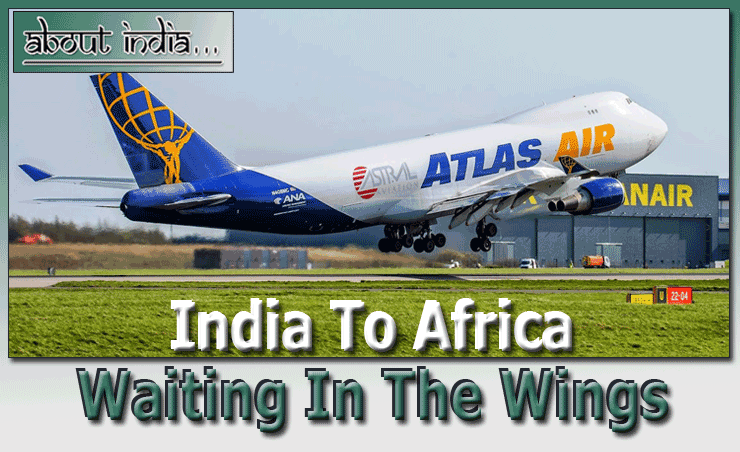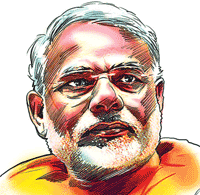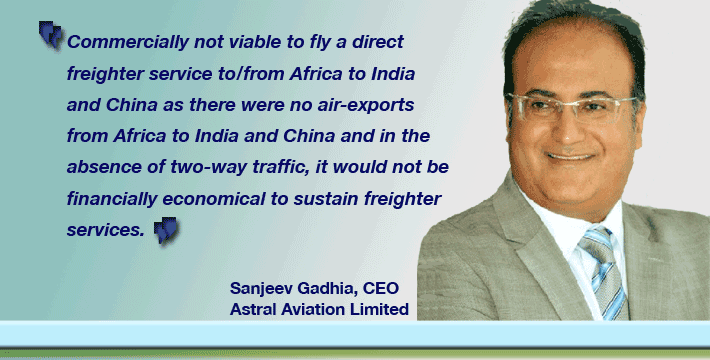
 The
overtures to boost trade made by Indian Prime Minister
Narendra Modi to 54 African leaders at last October’s
third India-Africa Forum Summit (IAFS) are yet to see
action on the ground. The
overtures to boost trade made by Indian Prime Minister
Narendra Modi to 54 African leaders at last October’s
third India-Africa Forum Summit (IAFS) are yet to see
action on the ground.
This, despite the Prime
Minister’s emphasis that “Africa will remain
at the center of our attention. Our engagement with
Africa will remain intense and regular.”
Going
Astral
Sanjeev Gadhia, CEO, Astral
Aviation Limited pointed out that the time had indeed
come “for more air connectivity between Africa
and India, strengthened as it is with the Prime Minister’s
keenness to bolster ties with Africa.”
However, the “sad
reality is that airlines from India have no footprint
in Africa as the market is dominated mainly by African
airlines such as Ethiopian Airlines and Kenya Airways.”
It’s
About Time
Gadhia underlined that
“it was about time that airlines from India commence
schedule services into key African hubs such as Nairobi,
Johannesburg, Lagos, and Addis Ababa.”
Astral, too, has kept
away from India.
The CEO mentioned that
while his freighters currently operate from Nairobi
to London and Liege in Europe in addition to eight African
destinations on a scheduled basis, “Astral does
not operate a direct freighter service to India or China
as it relies on its interline alliances, especially
with the Middle Eastern carriers, for moving its cargo
into the Nairobi hub.”
He was quick to also point
out that it was “commercially not viable to fly
a direct freighter service to/from Africa to India and
China as there were no air-exports from Africa to India
and China.”
He went on to explain
that, “in the absence of two-way traffic, it would
not be financially economical to sustain freighter services.”
China Cooperation
“Astral,”
Gadhia said, “has an agreement with China Southern
Airlines [that] has opened a door to continue to pursue
interline agreements with as many airlines as possible
that fly into its Nairobi hub.”
For his part, however,
Gadhia has been a strong advocate of intra-Africa trade
that is “on the increase as more Africans have
realized the importance of trading with each other.
“African manufactured
goods are competitively priced and attract lower customs
tariffs in addition to being of good quality,”
he stressed.
 |
Blocks
Emerging
“The important point
here,” Mr. Gadhia said, “is the emergence
of three trade blocs.
“These include the
Economic Community Of West African States (ECOWAS),
the Southern African Development Community (SADC), and
the Common Market for Eastern and Southern Africa (COMESA)
that covered nearly two-thirds of the continent.
“Just one year ago
in June 2015, COMESA-EAC-SADC Tripartite Free Trade
Area (Tripartite FTA) was established representing a
market of 26 countries with a combined total of 632
million people, which is 57 percent of Africa’s
population; and with a total Gross Domestic Product
(GDP) of USD$ 1.3 Trillion contributing 58 percent of
Africa’s GDP.
“To service such
a huge market, we deployed a B747-400 freighter (110
tons), B727-200 freighter (24 tons), DC9F (15 tons),
and F27 (5.5 tons).
“We hope to acquire
a further six B737-300 freighters over the next three
years.
“While a majority
of our freighters are used for intra-Africa services,
our twice weekly B747-400F Nairobi-London Stansted ‘perishables
services’ carries cut flowers and fresh vegetables
grown in Kenya.”
 The
carrier joined the African Airlines Association (AFRAA)
some time ago as its only cargo airline and perhaps
the only privately owned airline in the association. The
carrier joined the African Airlines Association (AFRAA)
some time ago as its only cargo airline and perhaps
the only privately owned airline in the association.
Said Gadhia, “Membership
in AFRAA has benefited Astral especially in savings
in fuel and ground-handling due to AFRAA's initiatives
for its member-airlines.
“Most important
is the effectiveness of AFRAA in lobbying for liberalization
for African airlines and promoting cooperation between
member-airlines, for which AFRAA has been very pro-active.”
This is important since
the “lack of liberalization combined with high
taxes on fuel and cargo are some of the hurdles that
we face in Africa,” said Gadhia.
“The other hurdle
was the lack of adequate airport infrastructure in many
African destinations.
“But obstacles aside,
Astral’s offer of reliable and cost-effective
air-freight solutions to over 50 destinations in the
continent now opens new opportunities and markets intra-Africa.
“With a middle class
population of 300 million across Africa, Astral offers
accessibility to its customers like never before.”
“As potential in
the continent grows,” Gadhia said, “Astral
will continue to offer air-freight solutions to existing
and new regions.”
TG
|





